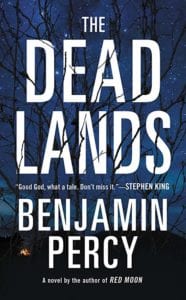
She knows there is something wrong with the baby. She has known from the very beginning. First there was the nausea that left her bedridden for weeks, dizzy and barely able to eat, chewing on cucumbers, filling up on spring water. Then the surges in temper, the blackening headaches. And finally a stillness inside her when there should have been movement—a fluttering, like the tail of a trout; that’s what her friends told her—so that she would twist her body and prod her belly until the child readjusted itself, assuring her it was there, it was alive.
They live in a windowless cabin high in the mountains. Others live not far away, some near a spring-fed stream, others cut back in the woods. Together they form a village of sorts, happily isolated, wary of outsiders and change, fearful of the stories told by their elders, stories of an illness that causes a bloody cough and blistering fevers, stories of missiles raining from the sky and cratering the earth, stories of scavengers with meaty breath and teeth filed into points.
Outside the snow is knee-deep. Before long it will be taller than her husband, taller than the cabin, and every day they will need to shovel a wide passage from their door in case they should be trapped, shrouded.
Sometimes she dreams the child is not a child. It is a grub, fat and white and segmented, with black eyes. It is a beast with tiny yellow fangs and tiny yellow claws, its body covered in fur as sleek as an otter’s. Or maybe it is a nothing, a dark spirit, a possessed vapor, and her body the house it haunts.
From the book The Dead Lands by Benjamin Percy. Copyright (C) 2015 by Benjamin Percy. Reprinted by permission of Grand Central Publishing, New York, NY. All rights reserved.
